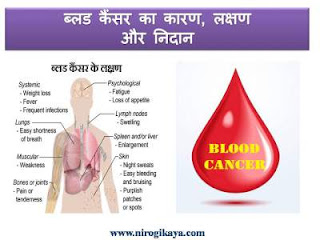Treating Advanced Prostate Cancer
occurs when a tumor develops in the , which makes the liquid portion of semen. that spreads outside the prostate gland to the lymph nodes, bones, or other areas is called . Currently, no treatments can cure advanced . However, there are ways to help control its spread and related symptoms.
Treatments that slow the spread of advanced prostate cancer and relieve symptoms often cause side effects. Some patients, often those who are older, decide that the risk of side effects outweighs the benefits of treatment. These patients may choose not to treat their advanced prostate cancer.
It's important to remember that researchers are always searching for new and better treatments that will cause fewer side effects, better disease control, and longer survival rates.
Endocrine Therapy and Prostate Cancer
Male hormones, specifically , fuel the growth of prostate . By reducing the amount and activity of testosterone, the growth of advanced prostate is slowed. Hormone () therapy, known as androgen ablation or androgen suppression therapy, is the main treatment for advanced prostate cancer. It is the first line of treatment for metastatic prostate cancer.
In many patients, endocrine therapy provides temporary relief of symptoms of advanced prostate cancer. Endocrine therapy may reduce tumor size and levels of prostate specific antigen () in most men. PSA is a substance produced by the prostate gland that, when present in excess amounts, signals the presence of prostate cancer.
However, is not without side effects. Some of the more serious side effects include loss of , impotence, weakened bones (), and problems.
Eventually, most patients with advanced prostate cancer stop responding to . Doctors call this castrate-resistant prostate cancer.
Chemotherapy for Prostate Cancer
Patients who no longer respond to hormone therapy have another option.
The drug () taken with or without (a ) is the standard regimen for patients who no longer respond to hormone therapy. Docetaxel works by preventing cancer cells from dividing and growing. Patients receive docetaxel, along with , through an injection. Side effects of docetaxel are similar to most drugs and include , , and bone marrow suppression (the decline or halt of cell formation). Patients may also experience ( causing tingling, numbness, or pain in the fingers or toes) and fluid retention.
Docetaxel, when used with or without prednisone, was the first chemotherapy drug proven to help patients with advanced prostate cancer. The average survival was improved by about 2.5 months when compared to with or without prednisone. Docetaxel has the best results when given every three weeks as compared to weekly dosing.
Cabazitaxel (Jevtana) is another chemotherapy drug, used in combination with the steroid prednisone, to treat men with prostate cancer. Cabazitaxel (Jevtana) is used in men with advanced prostate cancer that has progressed during, or after, treatment with docetaxel (Taxotere).
The safety of cabazitaxel (Jevtana) and its effectiveness were established in a single, 755-patient study. All study participants had previously received docetaxel (Taxotere). The study was designed to measure overall survival (the length of time before death) in men who received cabazitaxel (Jevtana) in combination with prednisone as compared to those who received the chemotherapy drug mitoxantrone in combination with prednisone. The median overall survival for patients receiving the cabazitaxel (Jevtana) was 15.1 months compared with 12.7 months for those who received the mitoxantrone regimen.
Side effects in those treated with cabazitaxel (Jevtana) included significant decrease in infection-fighting white (), , low level of platelets in the blood (), , , nausea, , , , and .
Provenge for Advanced Prostate Cancer
Sipuleucel-T (Provenge) is a "" for advanced prostate cancer that helps prolong survival.
Provenge isn't your everyday . It's an immune therapy created by harvesting immune cells from a patient, genetically engineering them to fight prostate cancer, and then infusing them back into the patient.
It's approved only for treatment of patients with few or no whose cancer has spread outside the prostate gland and is no longer responding to hormone therapy.
Once a cancer grows beyond a certain point, the immune system has a hard time fighting it. One reason is that cancer cells look a lot to the immune system like normal cells. Another reason is that tumors may give off signals that manipulate the immune system into leaving them alone.
Luteinizing hormone-releasing hormone (LHRH) antagonists
These drugs have been approved for use as hormone therapy in patients with advanced prostate cancer. LHRH antagonists lower testosterone levels more quickly than LHRH analogs. In addition, they don't cause a tumor flare (temporary rise in testosterone levels) as do LHRH analogs.
Degarelix (Firmagon) is a LHRH antagonist used to treat advanced prostate cancer. It has been shown to decrease the progression of disease, but further trials are needed to look at long-term outcomes. It is fairly well tolerated with common side effects being local injection site problems and increased liver enzymes.
Antiandrogens for Prostate Cancer
These prostate cancer drugs work by blocking the effect of testosterone in the body. Antiandrogens are sometimes used in addition to orchiectomy or LHRH analogs.This is due to the fact that the other forms of hormone therapy remove about 90% of testosterone circulating in the body. Antiandrogens may help block the remaining 10% of circulating testosterone. Using antiandrogens with another form of hormone therapy is called combined androgen blockade (CAB), or total androgen ablation. Antiandrogens may also be used to combat the symptoms of flare (temporary rise in testosterone that occurs with the use of LHRH agonists). Some doctors prescribe antiandrogens alone rather than with orchiectomy or LHRH analogs. Available antiandrogens include abiraterone acetate (Zytiga), biclutamide (Casodex), enzalutamide (Xtandi),flutamide (Eulexin), and nilutamide (Nilandron). Patients take antiandrogens as pills. Diarrhea is the primary side effect when antiandrogens are used as part of combination therapy. Less likely side effects include nausea, liver problems, and fatigue. When antiandrogens are used alone they may cause a reduction in sex drive and impotence.

Comments
Post a Comment